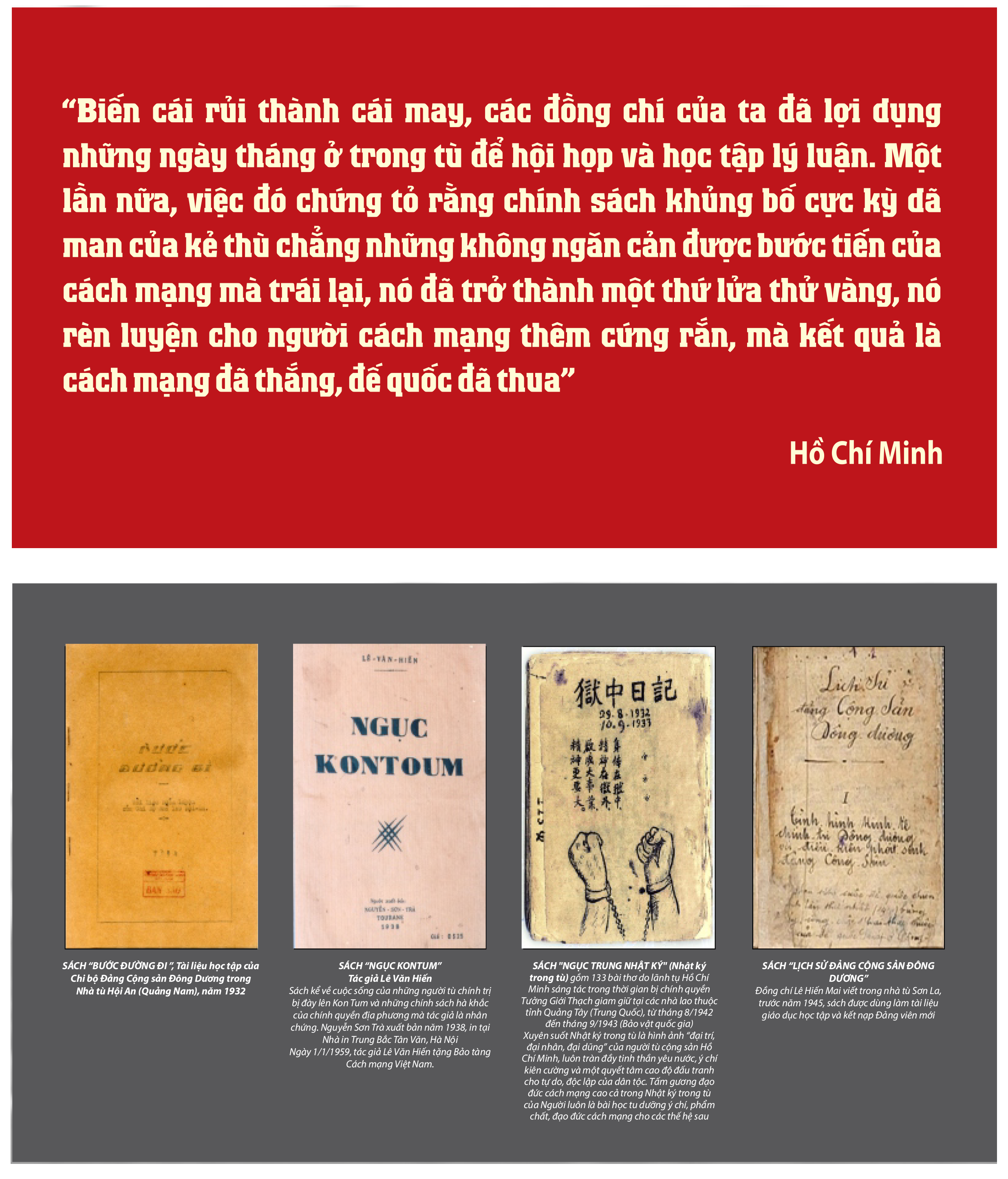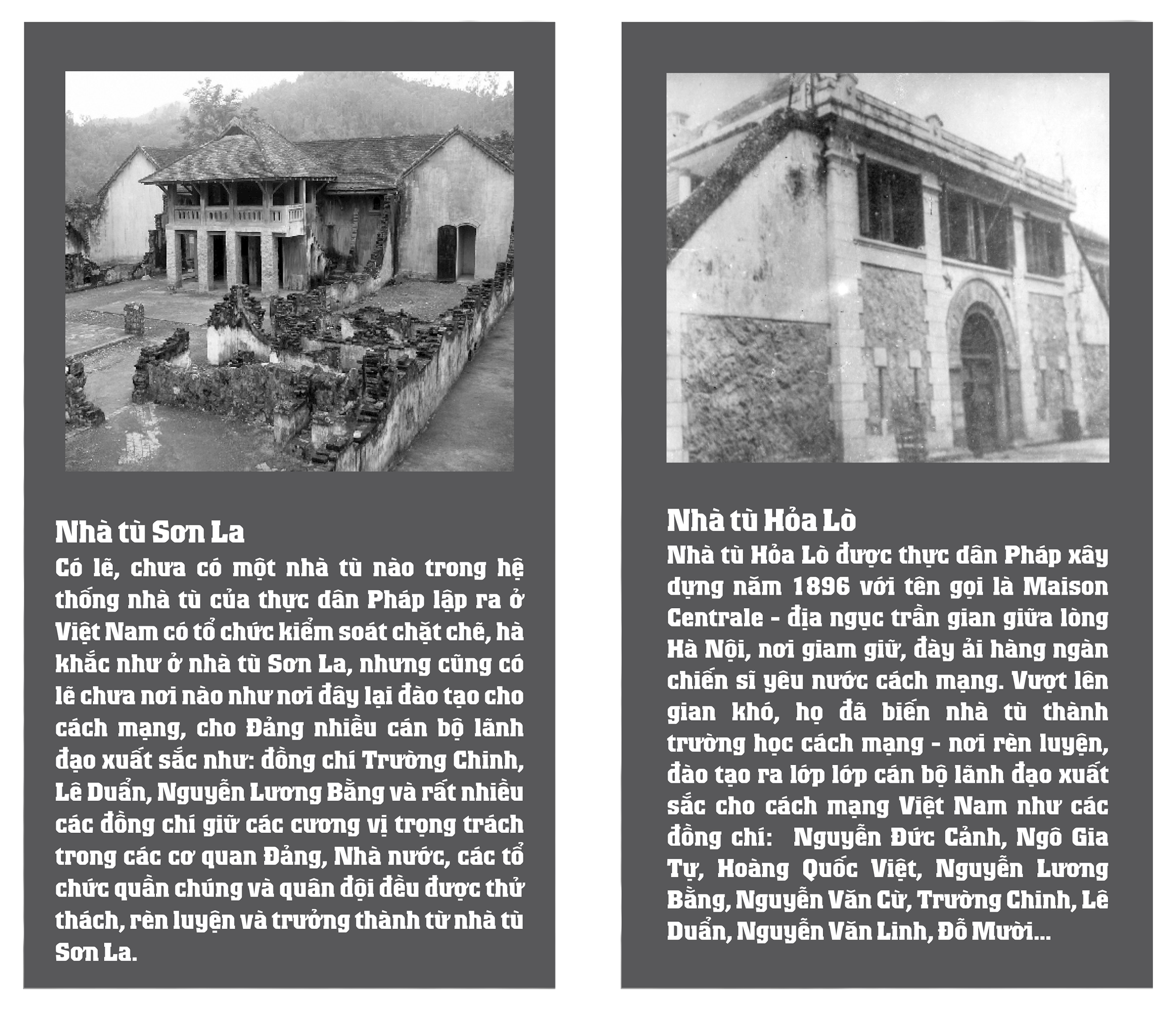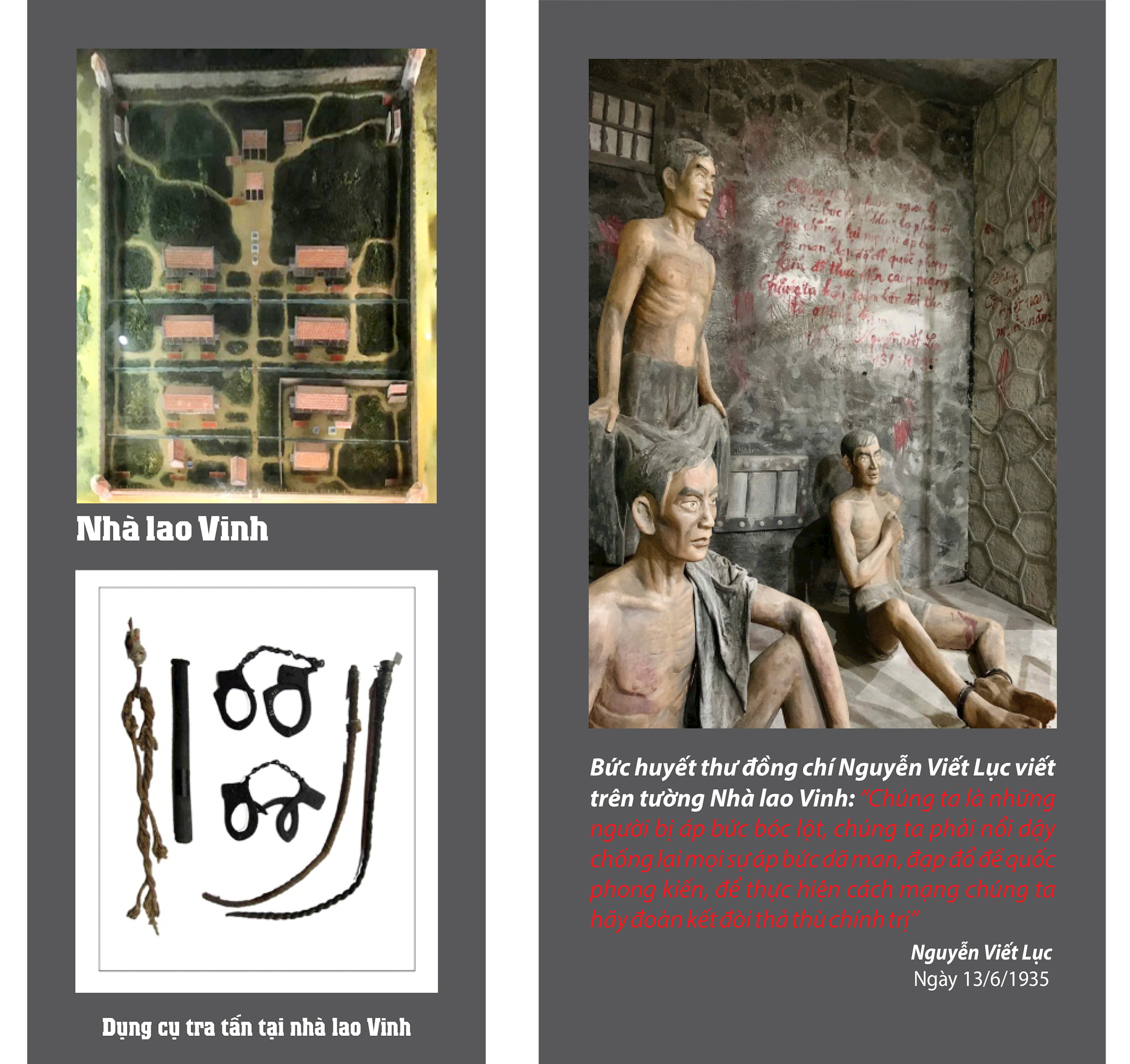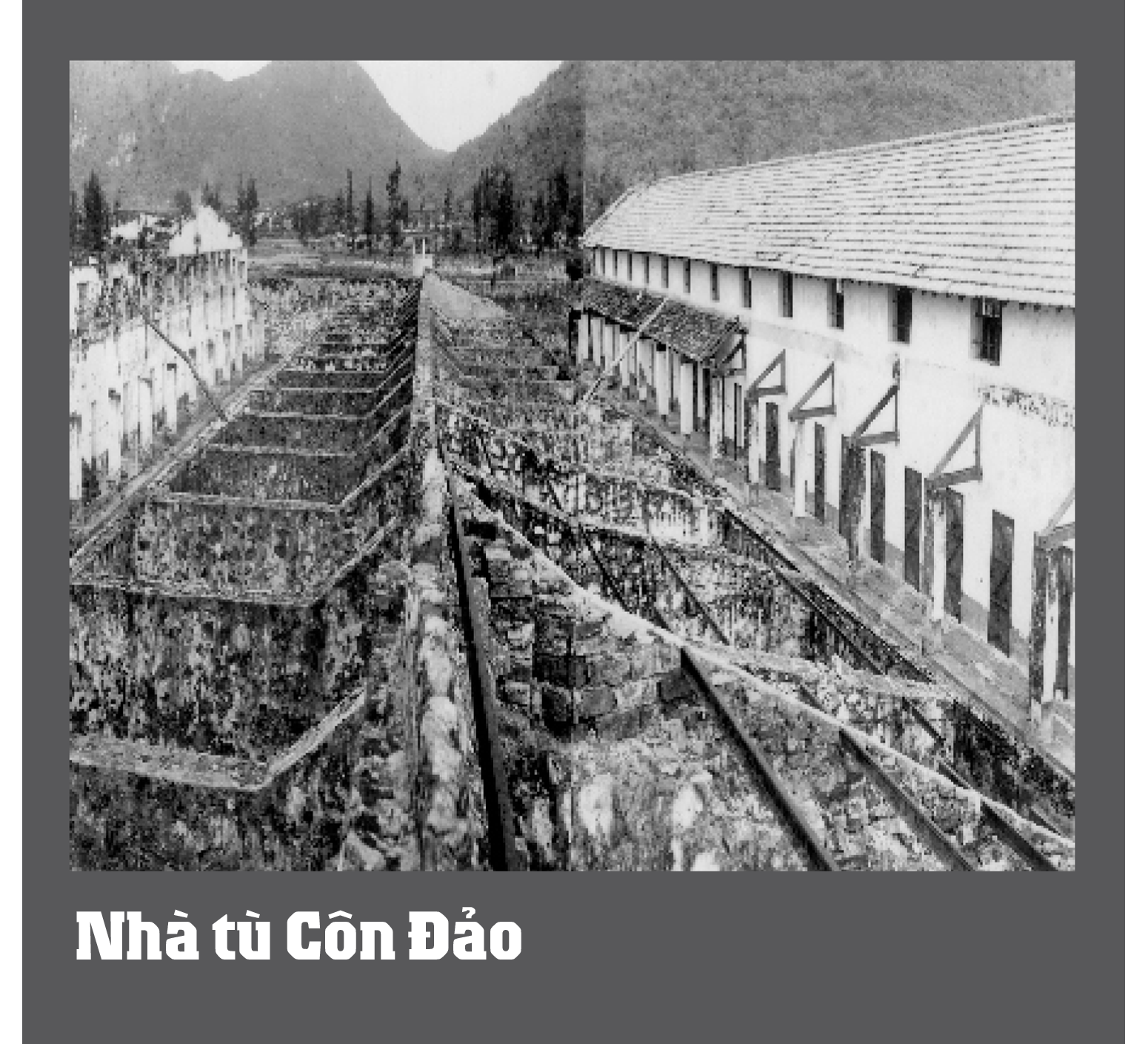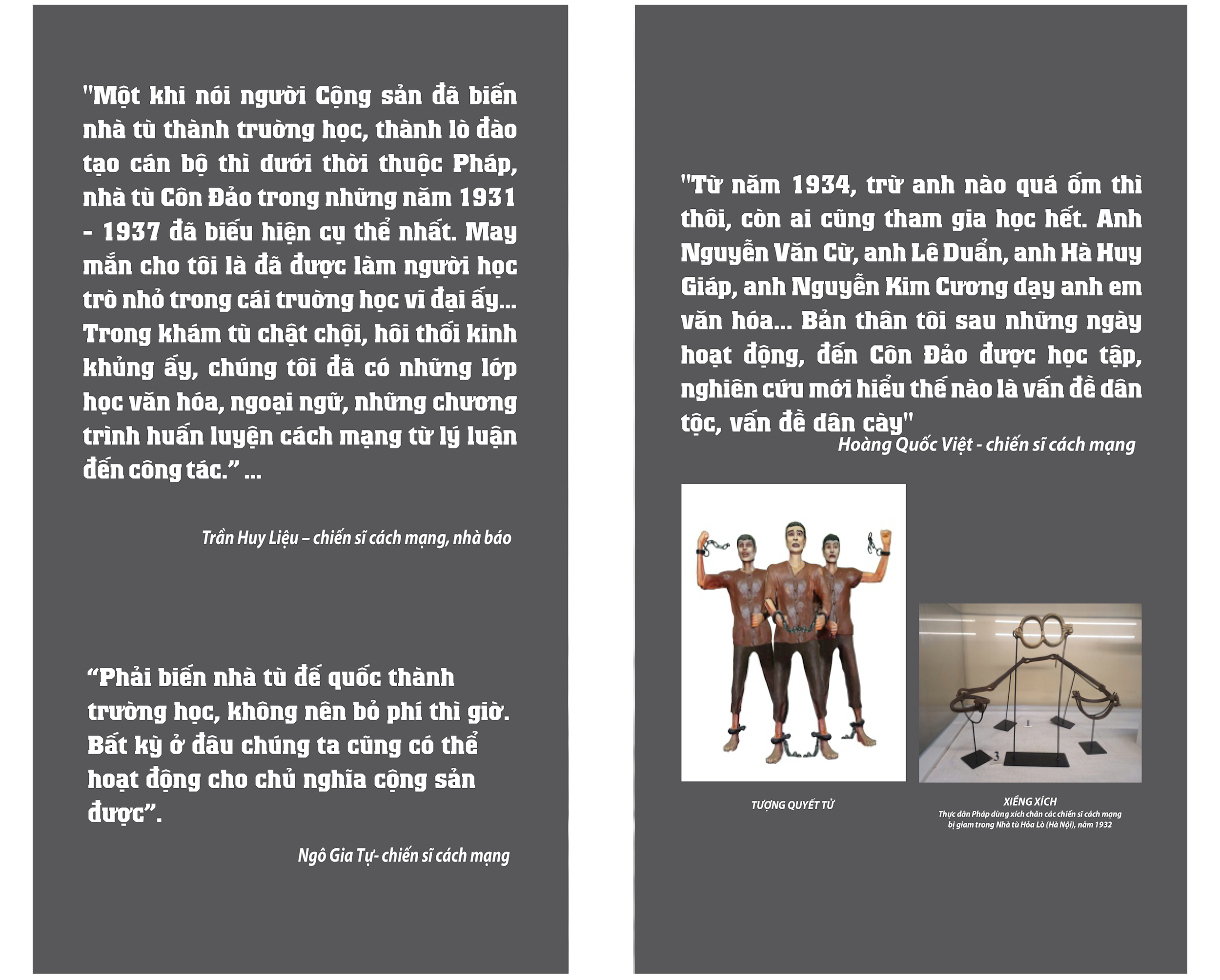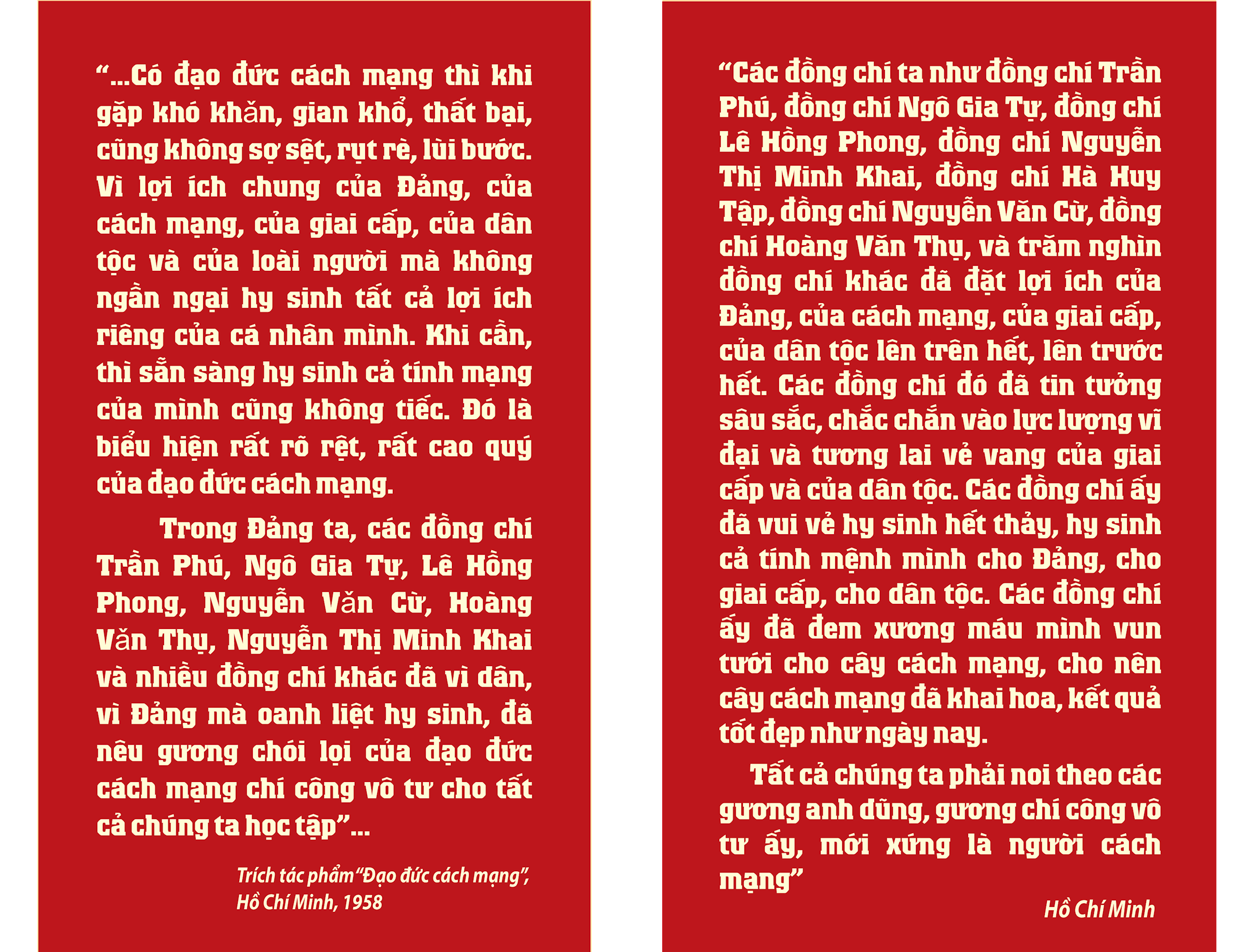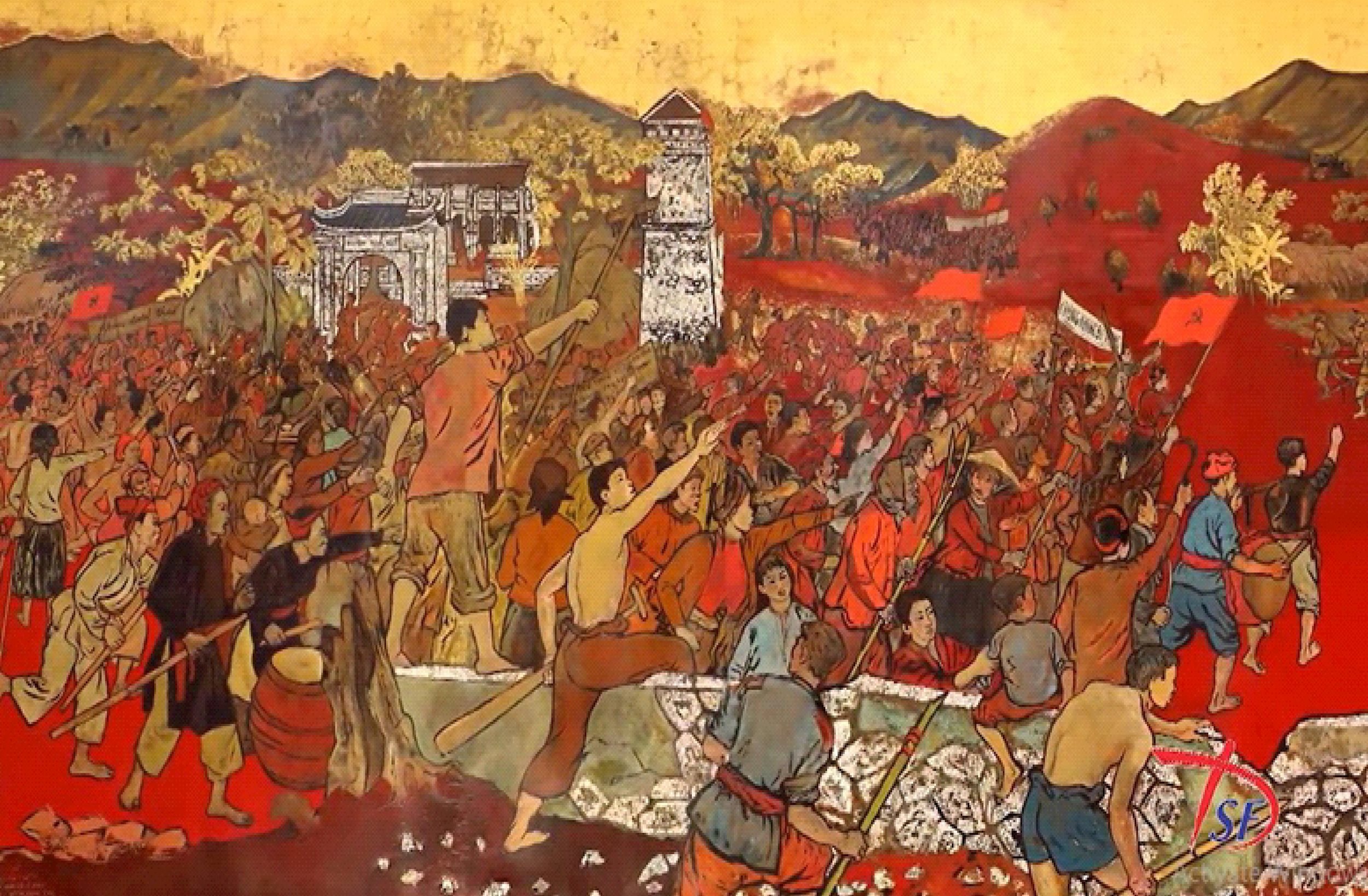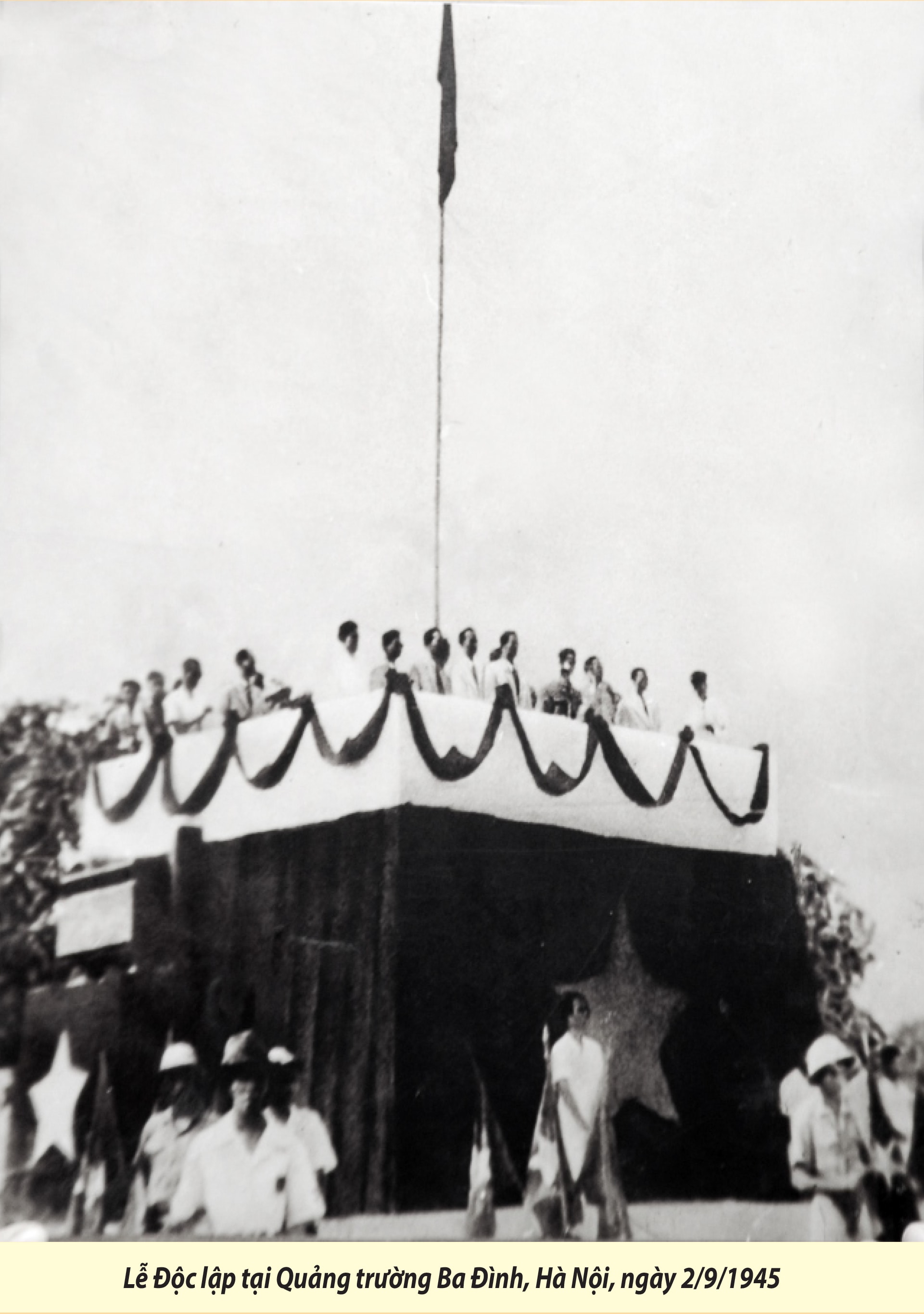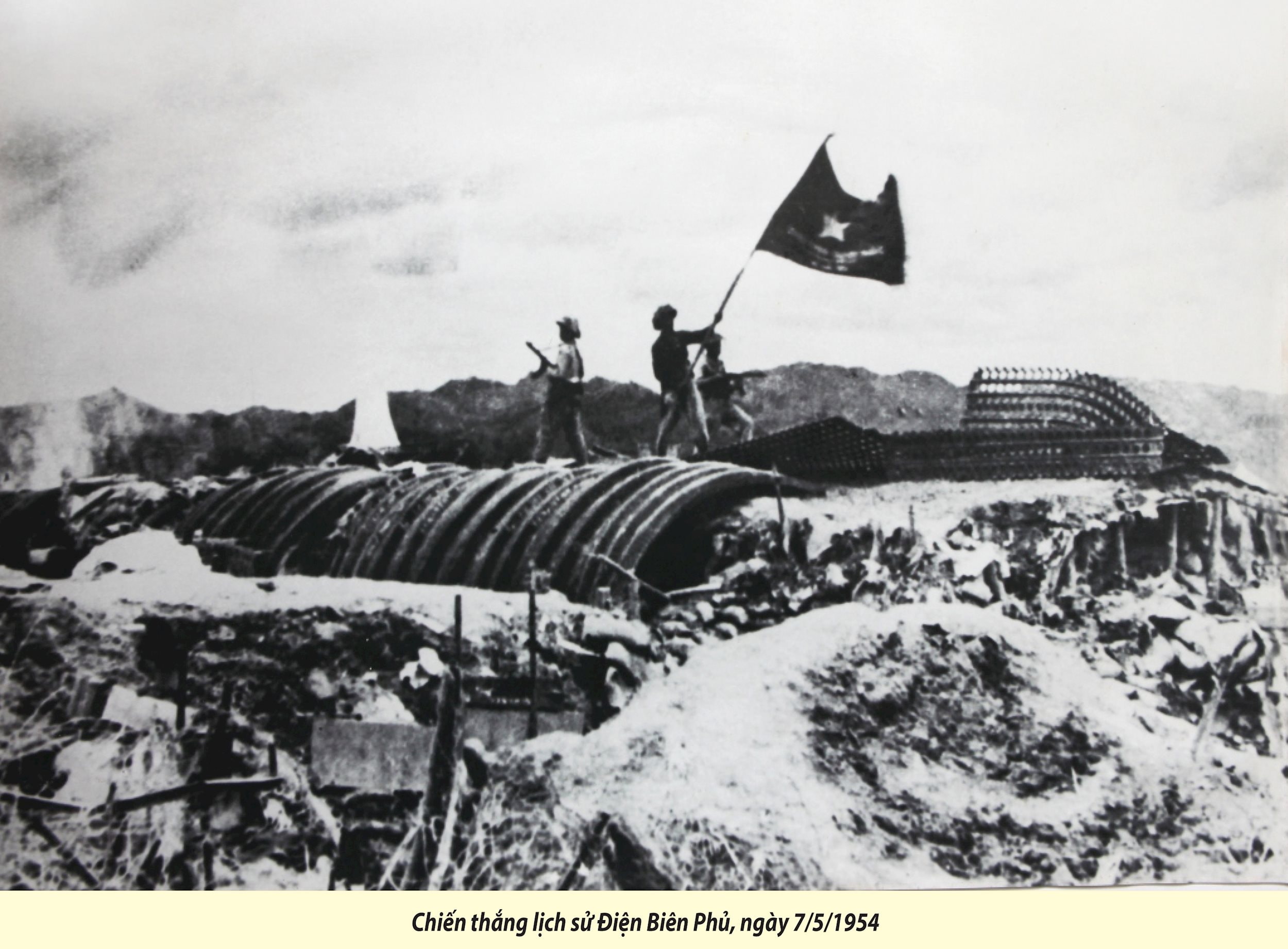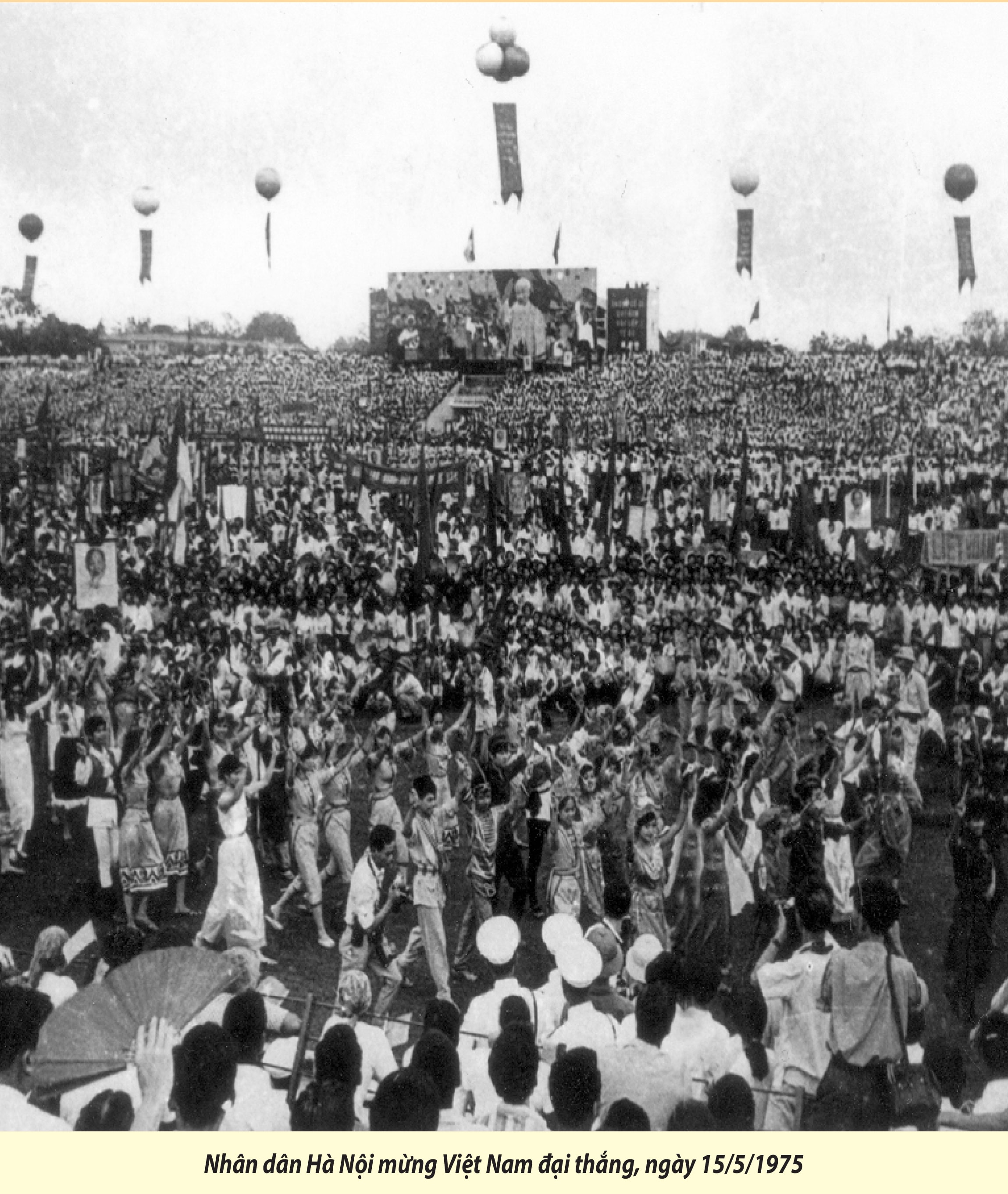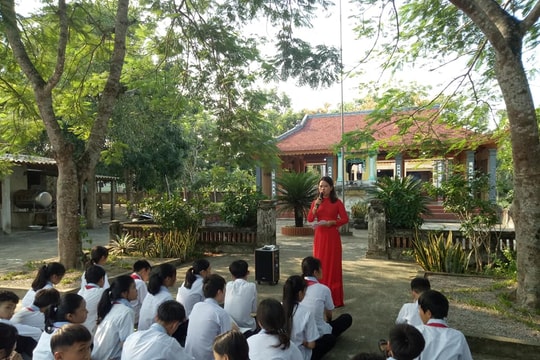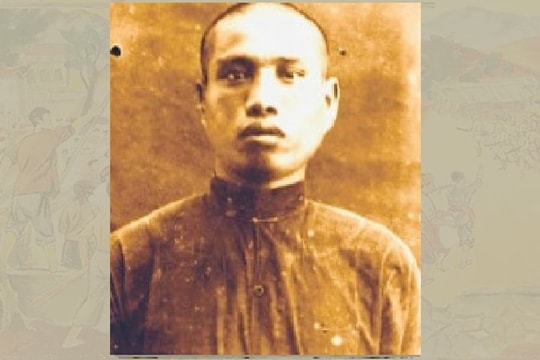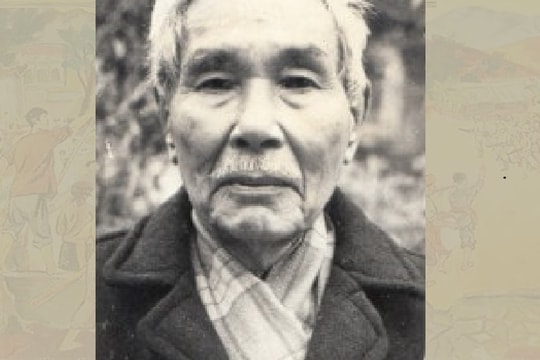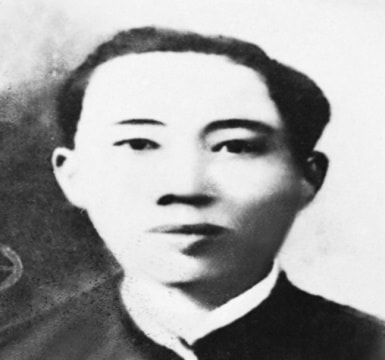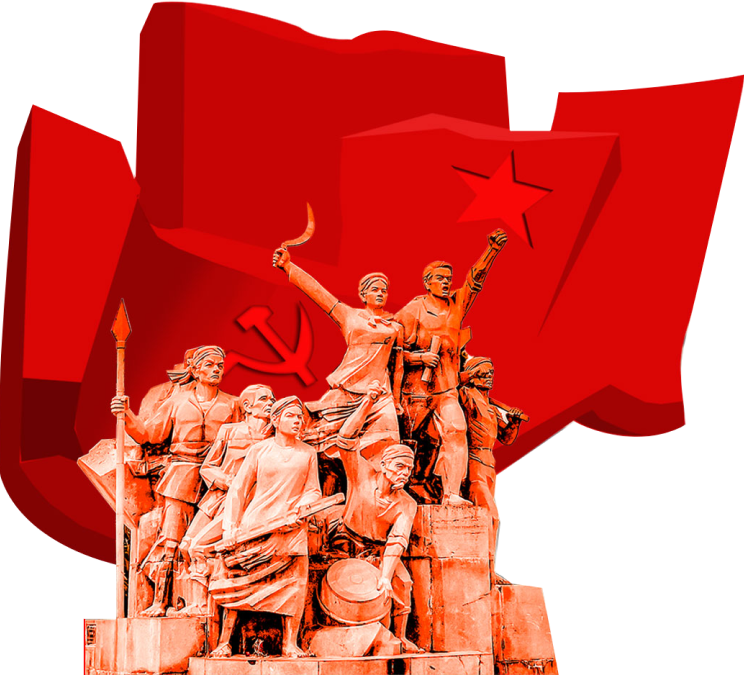Turn prison into revolutionary school
When establishing the ruling regime in Vietnam, the French colonialists built a dense system of prisons and detention camps from central to local levels such as: Son La prison, Hoa Lo prison, Vinh prison, Lao Bao prison, Buon Ma Thuot exile prison, Kontum prison, Con Dao prison, Phu Quoc prison, etc. "Turning misfortune into fortune, our comrades took advantage of their days in prison to meet and study theory", turning the imperial prison into a revolutionary school.
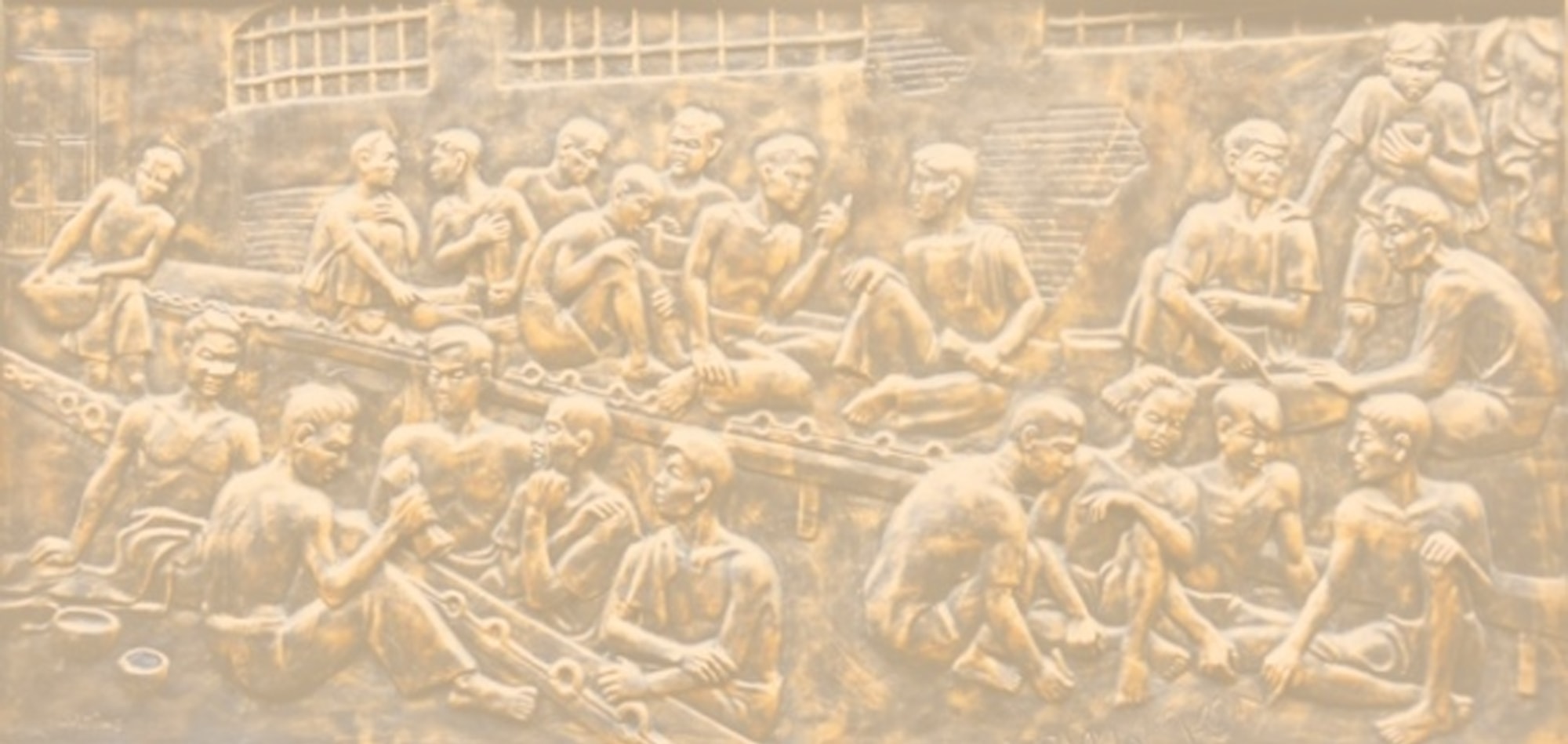

Collection of books and study materials of comrades in imperial prisons.
Images of Son La Prison, Hoa Lo Prison... hells on earth that once imprisoned many key Party cadres and were also the places that trained outstanding leaders of our Party such as comrades Truong Chinh, Le Duan, Nguyen Luong Bang, Nguyen Duc Canh, Hoang Quoc Viet...
In the Central region, Vinh Prison was built in 1804 in the ancient citadel of Nghe An, which was also the place where many generations of patriots and revolutionary soldiers were imprisoned from the Van Than and Can Vuong movements to the August Revolution in 1945, such as comrades Nguyen Phong Sac, Nguyen Xuan Linh, Nguyen Duy Trinh, Phan Dang Luu, Ho Tung Mau, etc. Under the leadership of the Party cell, political prisoners of Vinh Prison rose up and turned the imperial prison into a new battlefield of struggle. On the wall of Vinh Prison in the past, the blood letter written by comrade Nguyen Viet Luc before his sacrifice still resonates to the future as a call to thousands of political prisoners: "We must rise up against all barbaric oppression, overthrow feudal imperialism, to carry out the revolution..."
In the hell on earth, Con Dao Prison, despite extremely harsh detention conditions and brutal torture with tools such as chains, handcuffs, batons, "life and death" sticks, "sorrowful life" sticks, and even barbed-wire tiger cages to torture both physically and mentally, Vietnamese revolutionary soldiers still maintained the steadfast spirit of communists.
With the slogan "Turn prisons into revolutionary schools", in prison, Party cadres exchanged experiences in leading the movement, organized cultural classes, learned political theory, learned Marxism-Leninism... In places with conditions, the prison Party cell organized prison breaks to bring cadres back to the movement, rebuilding Party bases and mass bases. ...
In the workRevolutionary ethics,President Ho Chi Minh affirmed“…With revolutionary ethics, when facing difficulties, hardships, and failures, one does not become afraid, timid, or retreat. For the common interests of the Party, the revolution, the class, the nation, and humanity, one does not hesitate to sacrifice all personal interests. When necessary, one is ready to sacrifice one’s own life without regret. That is a very clear, very noble manifestation of revolutionary ethics.”
Those are also the invaluable qualities of the Red seeds that Uncle Ho nurtured and developed, becoming leaders of the Party with great contributions contributing to the great victories of the Vietnamese revolution in the 20th century, from the earth-shaking Nghe Tinh Soviet movement to the brilliant success of the August Revolution, from the resounding Dien Bien Phu victory that shook the world, to the great victory in the spring of 1975 that brought the country back together.
